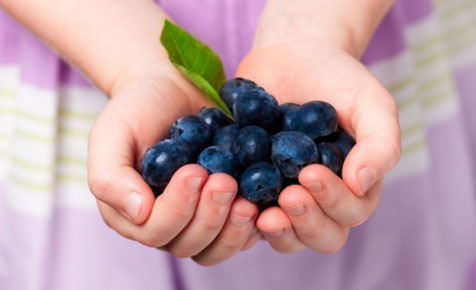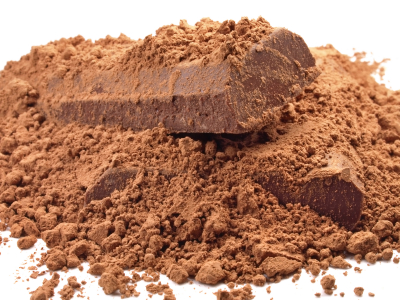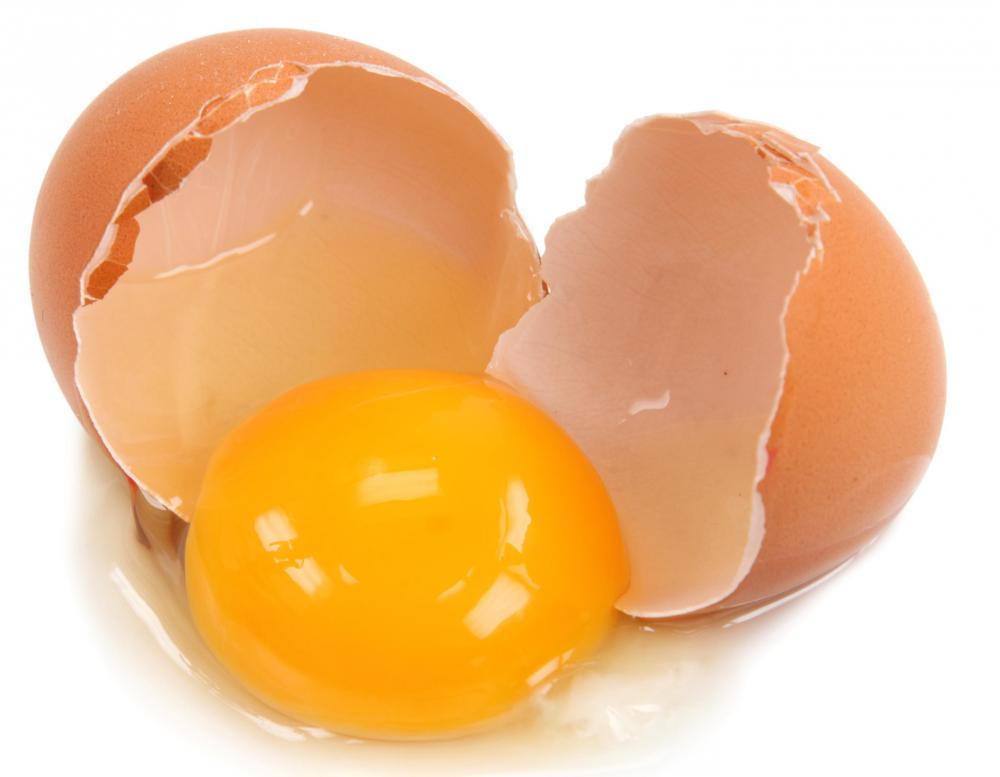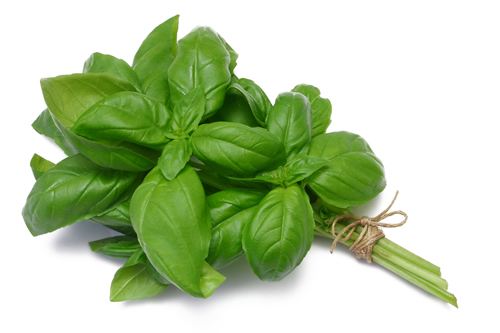Written By Karen Torrisi
 From meats, nuts, green beans, eggs and broccoli there are plenty of wholesome foods that will do your child's mind and body a world of good and even parents. These super foods should be incorporated into everyones diet and are especially important to little ones to give them a boost to their immunity system by providing them with these high vitamins and mineral foods to keep them healthy inside and out.
From meats, nuts, green beans, eggs and broccoli there are plenty of wholesome foods that will do your child's mind and body a world of good and even parents. These super foods should be incorporated into everyones diet and are especially important to little ones to give them a boost to their immunity system by providing them with these high vitamins and mineral foods to keep them healthy inside and out.
Fruit
Fruit is usually one of the first solids you start your child on. Fruits are usually of a puree form when they start and good to start with are apples and pears. Any fruit is good for your child as it provides essential vitamins and minerals. Fruit also has fiber, which keeps kids regular. For great nutritional benefits, aim to give your children a variety of fruits each day, like berries, melon, kiwifruit, apples, bananas, and oranges.

Blueberries are ranked among the healthiest fruits and classed as a superfood with the highest of antioxidants. Over the past few years research has suggested that blueberries not only protect against heart disease and diabetes though now linked to improving brain function and visceral "toxic" belly fat. Blueberries are great tossed in breakfast cereals, yogurts, frozen in fresh juice popsicles, eaten alone or in summer smoothies.
Milk
Milk is extremely important for children as it provides protein and calcium providing fuel for the brain and body. Protein helps build brain tissue, while milk's calcium keeps kids' bones and teeth strong. One think to remember is follow the required milk consumption guidelines (feeding guidelines available from government website) for children as you don't want to over feed your children with milk as they also need to eat. There breast/bottle or cup feeding consumption should slow down as they grow older.
Remember, after a baby is 1 year old, whole milk may replace breast milk or formula. Children under the age of 2-3 should not be given low-fat milk (2%, 1%, or skim) as they need the additional calories from fat to ensure proper growth and development. Children under the age of 1 should not be given whole milk as it has been shown to cause low blood counts and cheese, cottage cheese, and yogurt, however, may be given in small amounts.
Cheese
Cheese is a good superfood and fortunately you usually don't have to force your child to eat it as it will be something most children love to eat. Cheese is full of calcium, protein, vitamin B12 and contains phosphorus and bone building minerals. There are many ideas for cheese and as kids grow you can get more creative than a cheese sandwich.
Sweet Potato
This is great for first time pureed solids for babies. Kids love sweet potato and although a carbohydrate is is high in vitamin A and a great source of immunity development for children. Other suggestions would be mashed with pumpkin, oven baked sweet potato chips, grated into quiches with other super food vegetables.
Avocados are the only fruit laced with monounsaturated "good" fats that may lower your bad cholesterol, which can harm the heart. Avocado is also a superfood that stabilises the blood sugar and is full of vitamin E which protects your cells from free radicals. Avocado is a food you can mash and use for babies starting solids. Avocado can also be mashed with a little lemon juice and spread on toast or added to that great lunch time sandwich or used as a dip with raw vegetables for afternoon snacks.
Cabbage, Broccoli and Kale
Cabbage, Broccoli and Kale are also great superfood that are packed with antioxidants. Broccoli especially comes with a number of excellent pros such as antioxidants and calcium. It is also a very versatile veggie that can be served on its own or hidden into plenty of meal ideas and is great as a puree for starting solids for babies. Cabbage and Kale can be introduced after 12 months as toddlers when they start getting teeth and like crunching. Children tend to prefer cabbage over salad greens and cabbage and kale are less acidy than most lettuces.
Cabbage, broccoli, and kale also contain phytonutrients known to lower the risk for many types of cancer, as well as improve digestion. It also helps clear harmful toxins from the body and is high in magnesium which is often low in most people.
Dried Beans and Peas
Beans and peas are full of soluble fibre perfect for your baby’s heart and digestive system. Dried beans and peas also contain protein, iron, fibre, calcium, folic acid and magnesium. The darker the bean the more fibre and calcium they contain which are two things children don't get enough of. Children can start eating beans from a young age as they can be pureed and added to any other vegetable. Chick peas, kidney, butter beans, black bean and lentils are great to add to soups, in burgers, hummus, salads and nachos.
Eggs are a great source of protein and a no-go for children under the age of nine months. Once between 9-12 months offering eggs for breakfast or through other foods they're one of the few foods that naturally contain vitamin D, which helps the body absorb calcium. Eating protein at breakfast helps kids feel satisfied longer and a great for all children if not allergic.
Oily Fish
Fish like tuna, salmon, trout, mackerel and sardines all contain plenty of omega-3 fats essential for healthy brain development. Oily fish also has superb anti-inflammatory powers and research suggests a regular serve can fend off depression. Aim to serve fish twice a week for your family and hold off serving fish to little ones until 9 months and always check for bones. Also make fish fun so the kids don't get bored so serve in burger patties, mashed and mixed with low-fat mayo, thai soups, boiled with lemon or just grilled.
Oatmeal
Oatmeal is good for children after 12 months and research shows that kids who eat oatmeal are better able to concentrate and pay attention especially if in school. Fibre-rich whole grains, like oatmeal, digest slowly, providing kids with a steady stream of energy and are great with the addition of blueberries, strawberries, cocoa or cinnamon.
Tomatoes
Tomatoes are are high powered antioxidant like blueberries and good for children after 9 months. Tomatoes are loaded with lycopene which is a antioxidant that protects against degenerative diseases. Lycopene is a carotenoid and phytonutrient found in red fruits and vegetables such as tomatoes, pink grapefruits, watermelons and papayas also good fruit for kids. It is the compound that is responsible for the red color in these foods. Numerous studies have shown that ingesting lycopene-rich foods can result in positive health benefits and protection against many cancers.
This herb is packed with antioxidants -- vitamins A, C, and K -- as well as iron, potassium, and calcium and can help improve digestion. Basil can be added to from 9 months to toddlers foods. Kids can freak out at the site of green stuff so you may need to grind it and add to pasta sauces, soups or spoon over different meats and great in patties.
Spinach
An excellent source of iron, calcium, magnesium and folic acid, along with vitamins A and C, spinach is great for growing bones and brains. Spinach can be chopped and added to mushy foods, soups, quiches with other super foods and tossed with kale in a salad.
Nuts
Nuts are a great source of healthy fats for children which kids need for growth and development, as well as for heart health. Due to different nut allergy restrictions at day cares and schools you will need to give your children their nut intake at home. Nuts are good for children and I believe that you should incorporate nuts at a young age (grounded) into children's foods to avoid later development of allergies. As said, nuts are a great source in anyones diet which also give your child a burst of energy to keep them going... even parents.
Cinnamon
Much research has shown that spice can help regulate blood sugar and minimise those mid-morning energy crashes or toddler meltdowns. Some ideas for kids would be to add cinnamon to muffins, bread, yoghurts, cereal and smoothies.
Cocoa
 At this stage your probably thinking "WHAT".... but yes, cocoa powder has one of the highest concentration of flavonoids and a compound known to improve the heart, oral health, blood pressure and protect skin from sun damage. Use at least 70 percent pure cocoa and check that it isn't processed with alkali (also called "Dutch processed"), which removes most of the flavonoids. This is something you can add after the age of 12-14 months to pancakes, served as warm cocoa or to add flavour to other foods.
At this stage your probably thinking "WHAT".... but yes, cocoa powder has one of the highest concentration of flavonoids and a compound known to improve the heart, oral health, blood pressure and protect skin from sun damage. Use at least 70 percent pure cocoa and check that it isn't processed with alkali (also called "Dutch processed"), which removes most of the flavonoids. This is something you can add after the age of 12-14 months to pancakes, served as warm cocoa or to add flavour to other foods.
Beef
Everyone needs iron in there diet and some children are lower in iron than recommended and the best source of iron is Beef. Beef is one of the best sources for iron which will provide your baby with plenty of energy. Children as young as six months can start tasting meat but make sure it is pureed. Mixing meat with a veggie, such as sweet potato, can make it a little more appetizing for infants. Beef is also recommended twice a week.
Related Articles:
Healthy Foods and Kids Lunch Boxes
Expert Advice: Starting Solids




